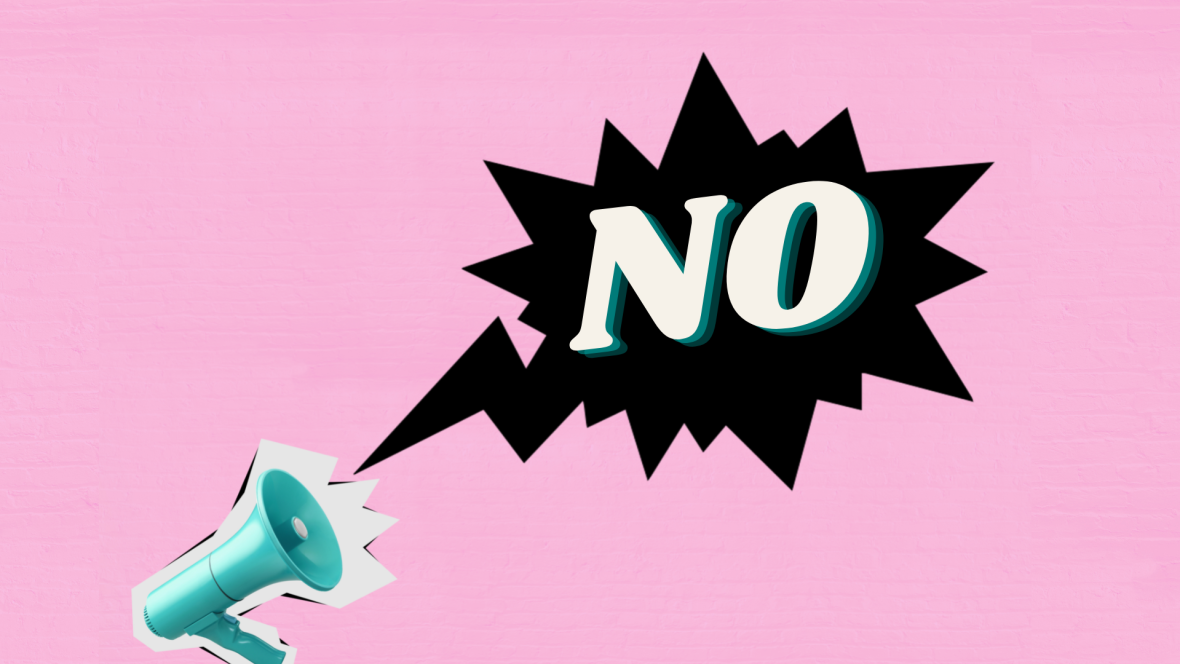We’re less than two weeks away from Thanksgiving — meaning many of us are less than two weeks away from the infamous annual dinner clapback battles. However, this year’s preparation for the (sometimes dreadful) holiday season has the potential to look a little different. Earlier this month, the term “NO”vember, also NO-vember, went viral — the play on words promoting the importance of setting boundaries. Described as “a time to start saying ‘no’ to people, places & things that drain your energy,” the trend has many re-evaluating how they approach and respond to difficult situations.

While setting boundaries may be important when talking to that nosy auntie at the Thanksgiving table, they’re crucial when discussing mental health. Therapist and boundaries expert Nedra Glover Tawwab explains that setting boundaries benefits one’s peace of mind, expectations, relationships, and ability to address these situations.
“It’s never too late to set a boundary,” says Tawwab on an episode of “The Gray Area with Sean Illing” podcast.
While it may seem silly to address an issue you’ve let slide for days, weeks, or months, not saying anything can impact your health more than you realize. A persistent lack of boundaries can increase the likelihood of stress, burnout, anger, resentment, and more — all of which can trickle down lead to affect your physical health as well. But how do you identify when your boundaries are being crossed?
“I have learned that [boundaries have] a lot of gray areas. It’s all of these situations that we feel very uncomfortable about in our relationship, it is bigger than ‘no’; it is bigger than just cutting people off,” Tawwab further explains.
Still, for many people, simply saying “no” can be a good start at practicing boundaries. Oftentimes, whether it’s in our professional, romantic, personal or familial relationships, we have a hard time saying no. Experts note that human relationships rely on reciprocity — in other words, matching energy. In that context, sometimes saying “no” can feel like a threat to our connection with people and an invitation for conflict.
Let’s be honest, no one likes to hear the word “no.” Despite hearing it as children (some of us more than others), it’s as if we navigate our relationships wanting to protect the other person from feeling the disappointment that comes with that two-letter word. But in protecting others, we are ultimately harming ourselves, especially as people of color.
“These communities disproportionately carry high levels of burden with less access to education, housing, economic and political opportunities while shouldering more violence and disparities in health and well-being. These communities are resilient, but even resilience has its limits,” cautions Rheeda Walker, a licensed clinical psychologist, and professor at the University of Houston, per Yahoo.
“We often get overwhelmed before we know it,” Walker added. “When that happens, we feel as if we cannot take anymore, mentally. Because we need our minds to accomplish everything in life, it’s a good idea to protect it before feeling overwhelmed, and even if we think we can ‘handle anything.’ Everyone has a limit.”
As we walk into the holidays and are forced to interact with some of our loved (and not-so-loved) ones, remember your limits. Saying “no” and cutting someone off may not be a long-term solution, but it can be a band-aid for additional holiday stress. So, before you start shadowboxing with that one cousin who always has something to say, remember what Tabitha Brown once told theGrio:
“Your life is your life —and that’s your business.”
Haniyah Philogene is a multimedia storyteller and Lifestyle reporter covering all things culture. With a passion for digital media, she goes above and beyond to find new ways to tell and share stories.
TheGrio is FREE on your TV via Apple TV, Amazon Fire, Roku, and Android TV. TheGrio’s Black Podcast Network is free too. Download theGrio mobile apps today! Listen to ‘Writing Black’ with Maiysha Kai.

